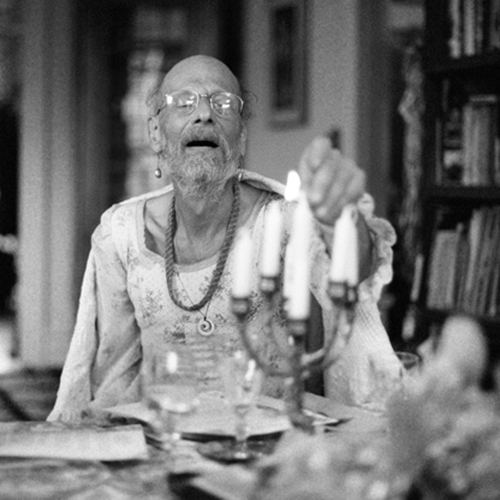FAYGELE BENMIRIAM, was born on this day (d:2000) . A Seattle civil-service worker who made news in 1972 when he lost his job because he was gay, but who in 1978 convinced the U.S. Supreme Court to vacate the firing, wore his beliefs proudly. An ardent crusader for gay, racial and religious rights, he organized national men’s meetings and took part in the 1987 Lesbian and Gay March on Washington, D.C.
He helped found Seattle’s Gay Community Social Services, which opened the Gay Community Center and produced the first gay country-music album, “Lavender Country.”
In 1971, with then-partner Paul Barwick, he was part of the first King County couple to apply for – and be denied – a license to marry someone of the same sex.
“Faygele never looked at things from a standardized viewpoint,” said friend Duane West, who in the 1970s marched with benMiriam at an anti-gay-harassment rally at the home of Seattle police Chief George Tielsch. “From the early days he and others did a lot of work, and now police march in gay-pride parades.”
Born John Singer in New York, Mr. benMiriam in 1973 changed his first name to Faygele — Yiddish for “little bird” and “gay person.” He changed his surname to benMiriam — “son of Miriam.”
Even in childhood he was an activist. He refused to pray with the rest of his class at public school in the 1950s. He attended several colleges, served as a Vista volunteer for civil-rights causes in the mid-1960s, applied for conscientious-objector status and served as an Army medic in Germany.
In 1970 he earned a liberal arts degree at City College of New York. He worked in a San Francisco bank before moving to Seattle. He got a job as a clerk-typist with the Equal Employment Opportunity Commission in 1971, openly declaring his homosexuality. He got excellent work reviews but wore capes and dresses to work and was fired a year later. The American Civil Liberties Union took his case and they pursued it up to the Supreme Court.
The high court vacated his firing and ordered the Civil Rights Commission to reconsider in light of new federal civil-service regulations of 1975. Those regulations require that people not be disqualified from federal employment solely on the basis of sexual preference.
Mr. benMiriam got back pay but chose to work for the U.S. Department of Labor, from which he retired in 1995. He served on the National Board of the New Jewish Agenda, worked with the International Jewish Peace Union and was active in Kadima of Seattle. He loved baking and knitting gifts for others.
Faygele benMiriam died of lung cancer.
